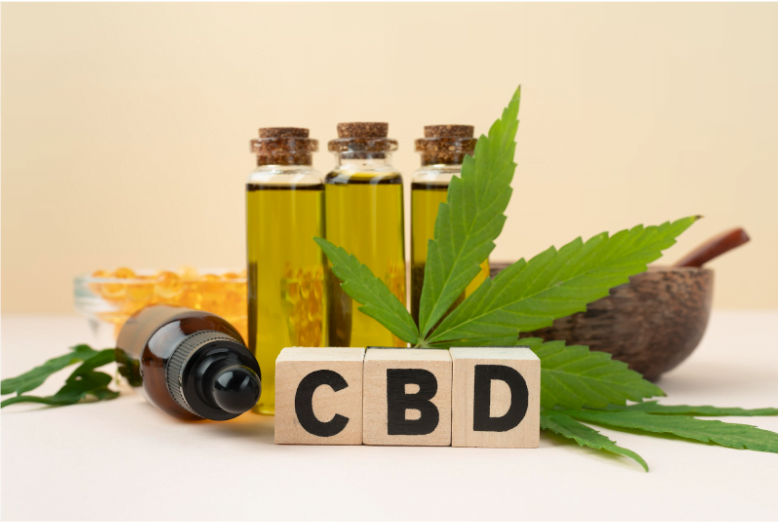Selling products online with Shopify is easy, but not everything is allowed. Shopify has clear rules about what you can and can’t sell on its platform.
These rules are in place to keep the platform safe, legal, and fair for everyone. If you’re a seller, it’s important to understand which products are banned and why.
In this article, we’ll break down Shopify’s product restrictions, explain how they work, and help you avoid getting into trouble. Let’s take a closer look at what’s not allowed on Shopify in 2025.
Let’s Understand Shopify’s Product Restrictions
Shopify’s product restrictions are designed to ensure legal compliance, maintain marketplace integrity, and protect users. These policies are outlined in two key documents: the Shopify Acceptable Use Policy (AUP) and the Shopify Payments terms and conditions specific to each country.
The Acceptable Use Policy
The Shopify AUP serves as the foundation for Shopify’s product restrictions. It outlines activities and products that are strictly prohibited across the platform, regardless of location. Some key areas covered by the AUP include:
- Child exploitation
- Harassment and threats
- Hateful content
- Illegal activities
- Intellectual property infringement
- Malicious and deceptive practices
- Unauthorized disclosure of personal information
- Promotion of self-harm
- Support for terrorist organizations
Shopify Payments Restrictions 2025
While the AUP applies to all Shopify stores, additional restrictions come into play for merchants using Shopify Payments, the platform’s default payment gateway. These restrictions can vary by country but generally cover:
- Financial and professional services
- Products infringing on intellectual property rights
- Regulated or illegal products and services
- Certain high-risk businesses
- Unfair, predatory, or deceptive practices
Also, note that products prohibited under Shopify Payments may still be sellable on the platform if merchants use alternative payment gateways. However, this requires careful consideration and compliance with both Shopify’s overall policies and those of the chosen payment provider.
Commonly Banned Products On Shopify
Let’s explore some of the most frequently encountered banned or restricted products on Shopify in 2025:
1. Alcohol And Tobacco Products
The sale of alcoholic beverages and tobacco products is heavily regulated in many jurisdictions. While these items may be legal to sell in some areas, they are typically restricted from using Shopify Payments.

Merchants looking to sell alcohol or tobacco products may need to use alternative payment gateways and ensure compliance with local laws.
2. Firearms And Weapons
Shopify maintains a strict stance on firearms and weapons. This category includes:

- Automatic and semi-automatic firearms
- Firearm parts and accessories
- Ammunition
- Explosives and fireworks
- Certain knives and other weapons
While some firearm-related products may be permissible, merchants must carefully review Shopify’s policies and relevant laws before listing such items.
3. Adult Content And Services
Shopify prohibits the sale of pornographic materials, adult toys, and sexually-oriented services.
This includes:
- Explicit sexual content
- Adult dating services
- Escort services
- Sexually-oriented massage parlors
4. Drugs And Drug Paraphernalia
The sale of illegal drugs is strictly prohibited on Shopify.

Additionally, the platform restricts the sale of drug paraphernalia, including:
- Equipment for making or using drugs
- Products designed to circumvent drug tests
- Certain herbal products mimic the effects of illegal drugs
5. CBD And Cannabis Products
The legality of CBD and cannabis products varies widely across different jurisdictions.

Shopify’s policies regarding these products have evolved, but restrictions still apply:
- In the US, merchants may be able to sell hemp-derived CBD products with less than 0.3% THC content, subject to specific requirements
- Cannabis dispensaries and related businesses face significant restrictions
- Merchants must comply with all applicable local and national regulations
6. Counterfeit And Unauthorized Goods
Shopify strictly prohibits the sale of counterfeit items or unauthorized replicas of branded products. This includes:

- Fake designer goods
- Unauthorized reproductions of copyrighted materials
- Products violating trademarks or patents
7. Financial And Professional Services
Certain financial and professional services are banned from using Shopify Payments, including:

- Investment and credit services
- Money transmission services
- Cryptocurrency-related businesses
- Legal services collecting funds for purposes other than paying fees
8. Gambling And Lottery Products
Shopify restricts the sale of gambling-related products and services, including:

- Lottery tickets
- Online gaming services
- Sports betting platforms
- Sweepstakes and contests with cash prizes
The Gray Area: Regulated And Restricted Products
Some products fall into a gray area where they may be permitted on Shopify but face significant restrictions or require special considerations:
1. Supplements And Nutraceuticals
While not outright banned, supplements and nutraceuticals face scrutiny on Shopify. Merchants selling these products must:

- Avoid making unsubstantiated health claims
- Comply with regulations set by bodies like the FDA
- Use caution when marketing products as treatments or cures
2. Cosmetics And Beauty Products
Certain cosmetics and beauty products may face restrictions, particularly those containing:

- Alcohol-based fragrances
- Aerosols
- Products making extreme claims about results
3. High-Risk Businesses
Some business models are considered high-risk by Shopify and may face additional scrutiny or restrictions:
- Multi-level marketing schemes
- Get-rich-quick programs
- Debt reduction services
- Psychic or fortune-telling services
Consequences Of Selling Banned Products
Violating Shopify’s policies regarding banned products can have serious consequences for merchants:
Immediate Store Suspension
Shopify’s Risk Department actively monitors the platform for policy violations. If a store is found to be selling banned products, it may be suspended or terminated without notice.
Financial Implications
Merchants may face financial losses due to:
- Inability to process payments
- Frozen funds in Shopify accounts
- Potential chargebacks or refunds
Long-Term Repercussions
Repeated violations or severe breaches of Shopify’s policies can result in:
- Permanent banning from the platform
- Damage to business reputation
- Potential legal consequences
Navigating Shopify’s Product Restrictions
For merchants looking to sell products that may fall into restricted categories, here are some strategies to consider:
Thorough Research
Before listing any products, thoroughly review:
- Shopify’s Acceptable Use Policy
- Shopify Payments terms for your country
- Local and international laws governing your products
Alternative Payment Gateways
If your products are prohibited by Shopify Payments but allowed on the platform:
- Explore alternative payment providers
- Ensure the chosen gateway allows your specific products
- Implement proper age verification for restricted items
Seek Professional Advice
When dealing with complex regulatory issues:
- Consult with legal experts familiar with e-commerce laws
- Work with Shopify experts to ensure policy compliance
- Stay informed about changes in regulations affecting your products
Alternatives For Selling Restricted Products
If your products are entirely banned from Shopify, consider these alternatives:
Other E-commerce Platforms
Some platforms may have more lenient policies for certain product categories:
- WooCommerce (for WordPress)
- Magento
- BigCommerce
- 3dcart
Self-Hosted Solutions
For complete control over your online store:
- Develop a custom e-commerce solution
- Implement robust security and compliance measures
- Be prepared to handle all aspects of online selling, including payment processing
Niche Marketplaces
Explore specialized platforms catering to specific industries:
- Alcohol: Drizly, ReserveBar
- CBD products: DirectCBDOnline, CBDfx
- Adult products: Lovehoney, AdultEmpire
Related Reads:
Conclusion: Shopify Enforces Strict Product Restrictions To Maintain Compliance And Protect Users!
Navigating the world of banned products on Shopify requires diligence, research, and a commitment to compliance. While the platform’s restrictions may seem daunting, they serve to create a safe and trustworthy environment for both merchants and consumers. By understanding these policies and exploring alternative solutions when necessary, businesses can find success in the e-commerce landscape while adhering to legal and ethical standards.
Remember, the e-commerce landscape is constantly evolving, as are regulations surrounding various products. Stay informed, adapt to changes, and always prioritize compliance to build a sustainable online business, whether on Shopify or alternative platforms.
FAQs
Shopify prohibits items like alcohol, tobacco, firearms, adult content, illegal drugs, counterfeit goods, and gambling-related products, among others.
Yes, but only under strict conditions. For example, in the US, hemp-derived CBD with less than 0.3% THC may be allowed if legal in your jurisdiction.
Yes, but merchants must comply with regulations, avoid unsubstantiated claims, and ensure products meet safety standards.
Selling banned products can lead to immediate store suspension, frozen funds, and potentially being permanently banned from the platform.
Review Shopify’s Acceptable Use Policy and Payments terms for your region, and consult legal experts if needed.

